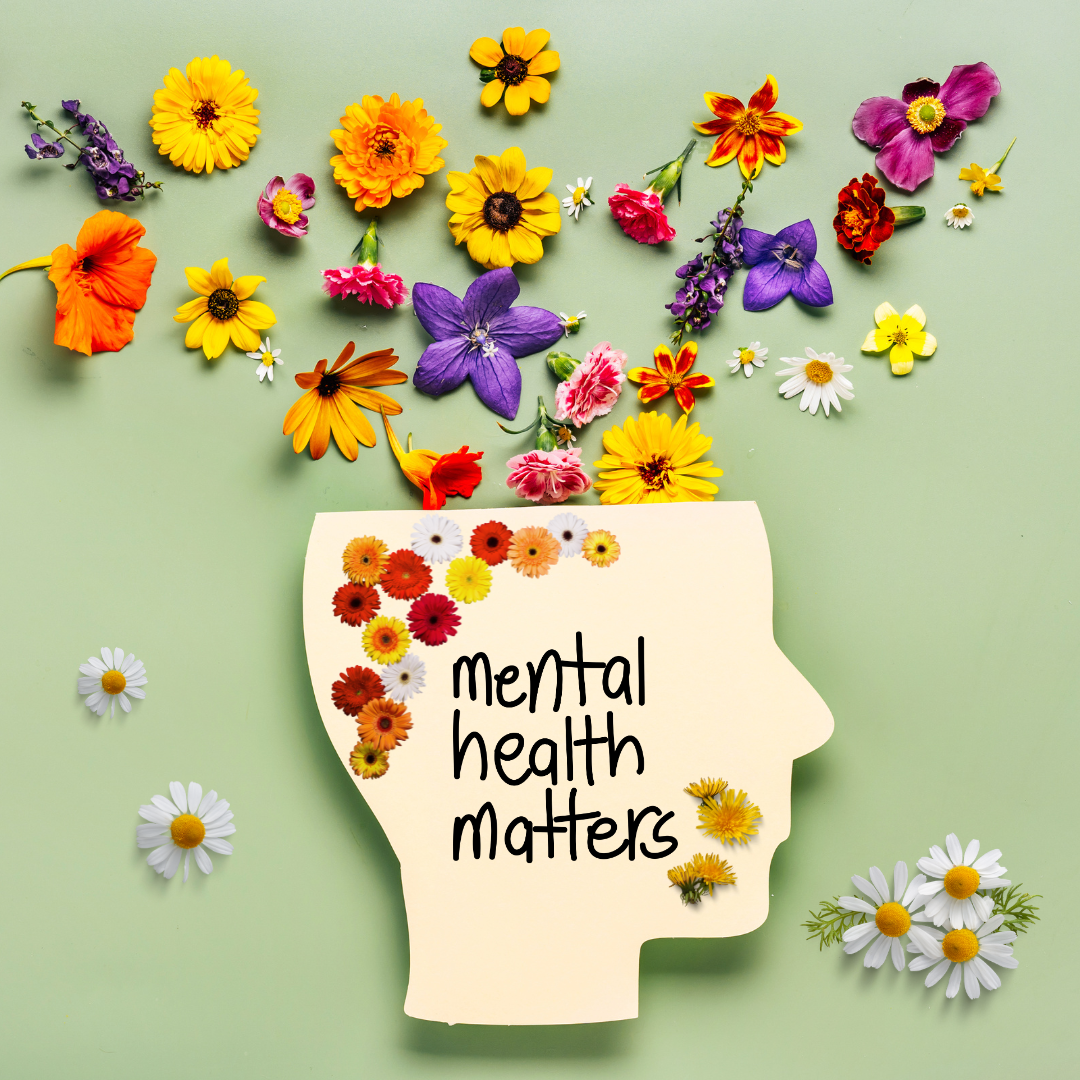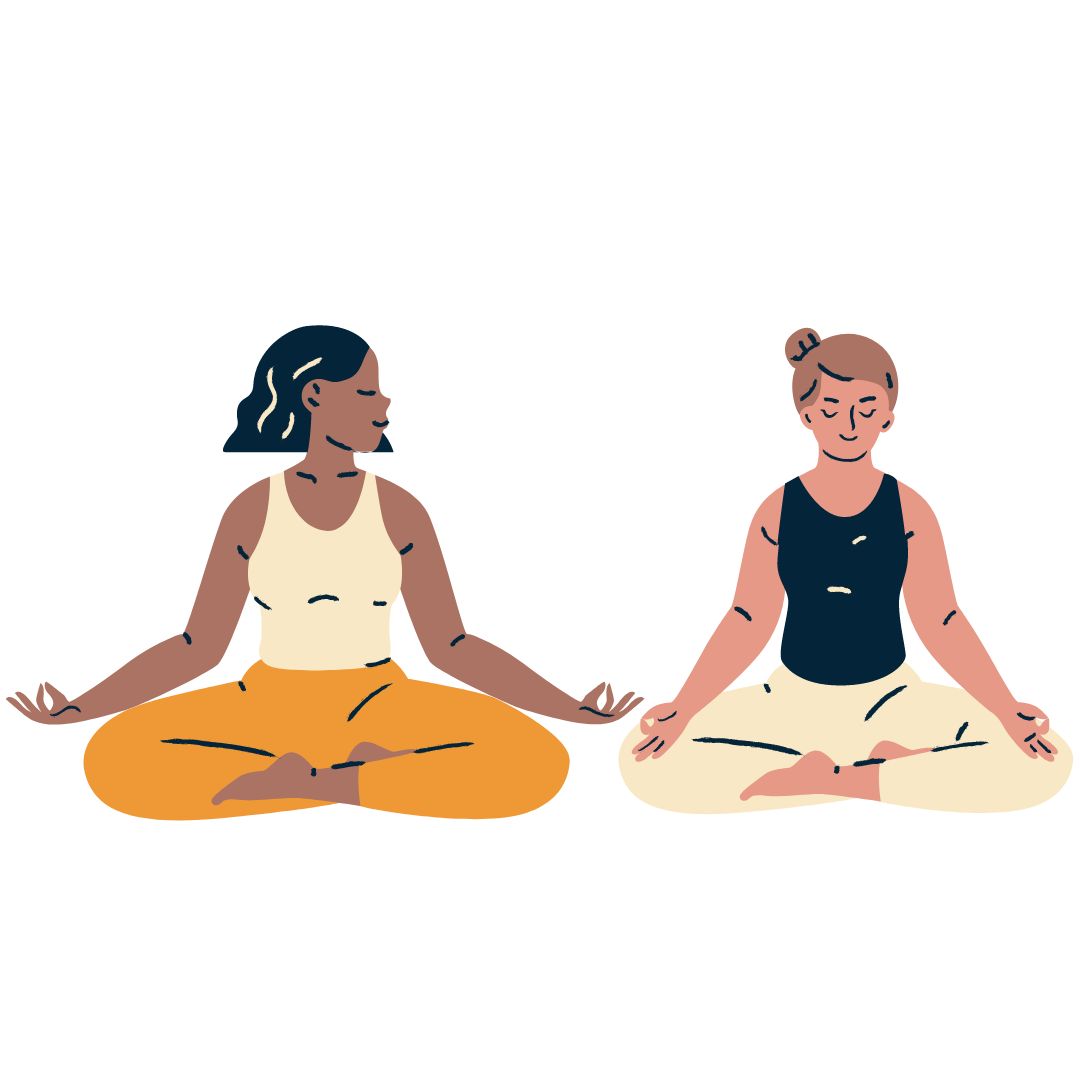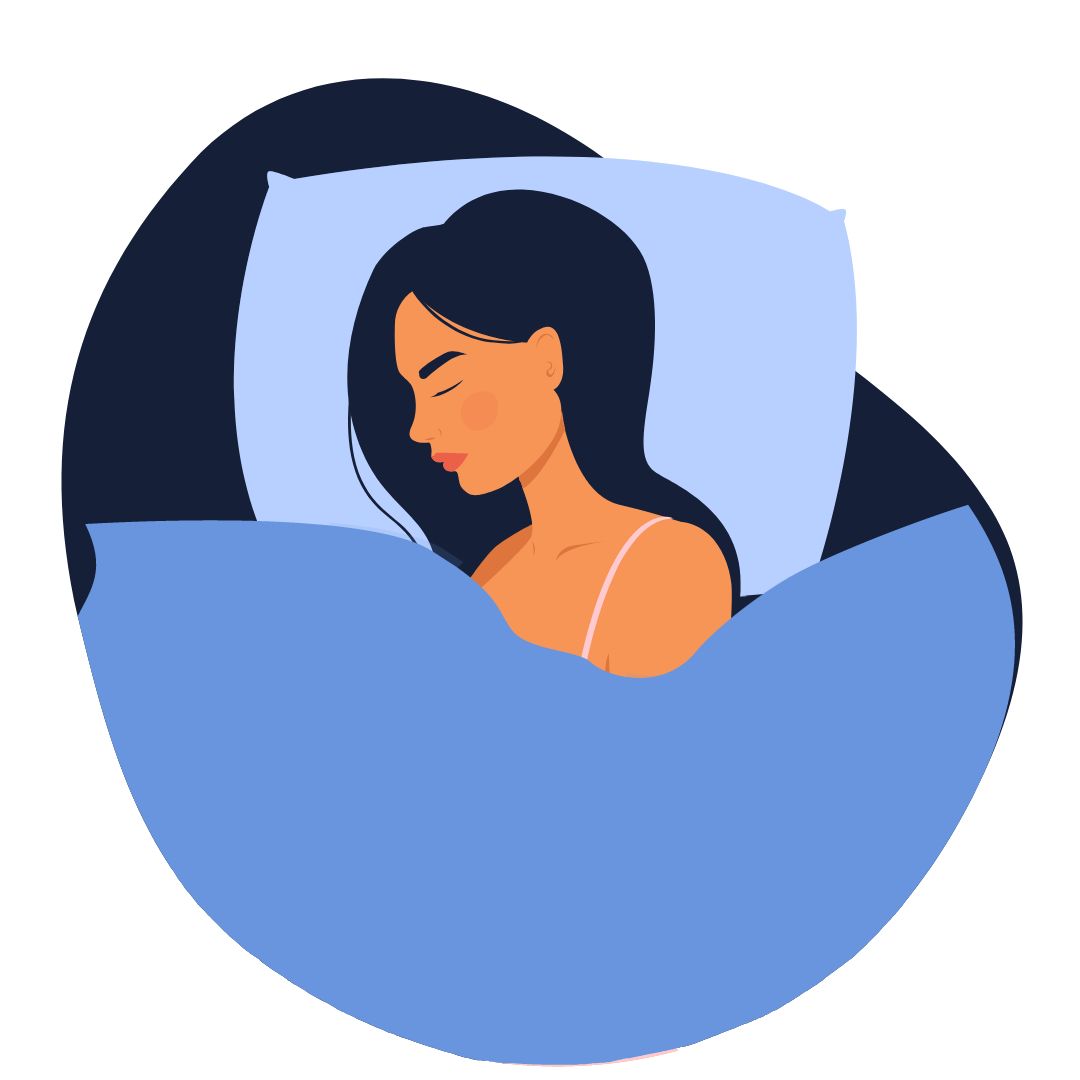May is Mental Health Awareness Month!

Mental Health Awareness Month brings attention to the importance of mental health and fights the stigma surrounding it. Mental health, which includes emotional, psychological, and social well-being, is just as essential as physical health and is critical to overall wellness. There are several options for support in our community to help you care for your mental and emotional well-being. You are not in this alone!
Setting up daily habits and routines can help improve mental health! Each person’s mental health hygiene looks different, and you should find practices that best fit you. What matters most is mindfulness and intentionality.
Self-care
Self-care is an essential component of mental health hygiene. According to Dr. Monique Tello, “there is a pervasive cultural pressure to keep pushing ourselves, to ignore the physical needs of our bodies and the emotional needs of our souls, which invariably leads to chronic stress, burnout, depression.” [1] Slowing down and taking care of our mental and physical health is not only important for our personal overall well-being – it allows us to be more present and take better care of those around us. Here are some factors that contribute to self care and mental health hygiene:

Nutrition
Nutrition plays a significant role in mental health. The foods we consume directly impact our brain’s functioning. As Dr. Eva Selhub explains, “Serotonin is a neurotransmitter that helps regulate sleep and appetite, mediate moods, and inhibit pain. Since about 95% of your serotonin is produced in your gastrointestinal tract, and your gastrointestinal tract is lined with a hundred million nerve cells, or neurons, it makes sense that the inner workings of your digestive system don’t just help you digest food, but also guide your emotions.” [2]
Cutting down on processed foods and refined sugars can support better mood regulation and brain functioning. Mental Health Partners recommends eating carbs to help with serotonin levels, incorporating vitamin-rich foods to help with your immune system and stress hormones, and eating food with potassium to reduce blood pressure. [3]
If you are a resident of Broomfield County and are in need of food assistance, Broomfield FISH’s cost free, self-shop marketplace offers a range of fresh healthy food options that can help with your nutrition. You can also visit our mobile food pantry at Centennial Elementary school from 2:30 – 4 pm every second and fourth Wednesday of the month. If you live outside of Broomfield, call 2-1-1 or check out this list of food pantries and food banks in other counties.

Exercise
Exercise releases endorphins that can lower stress and improve your mood. [4] You can personalize your exercise routine to best fit your needs and your lifestyle. Some people might like taking walks, while others prefer sports or higher-intensity work-outs. What matters most is that you are moving and staying consistent in your routine!

Quieting the Mind
Mindfulness and meditation, or other relaxation techniques, contribute to self-care. Scope 10k, published by Stanford Medicine, recommends focusing on the five senses to help with focus and grounding. Pay attention to what you are seeing, hearing, smelling, tasting, or feeling. [5] Mindfulness and attention are hard habits to maintain with the many distractions we face on a daily basis. Taking time to be off of phones or other devices that draw our attention away and instead choosing focused activities can help train the brain to slow down.
Starting with one activity a day can help make mental health hygiene feel manageable without requiring a large time commitment. Good news – it can be something you already do everyday! You can make chores, meals, or any other daily activity a part of your mental hygiene routine, as long as you take time, slow down, and practice intentionality. It could also mean doing more of the things you love, like spending time on one of your hobbies, reading your favorite book, or listening to music! [6]

Sleep
Sleep hygiene also plays a huge role in our mental health. A lack of sleep can intensify symptoms of mental health conditions and vice versa. [7] Food, environmental factors, and personal behaviors can all impact your sleep. The CDC provides the following recommendations for improving sleep hygiene:
- Be consistent. Go to bed at the same time each night and get up at the same time each morning, including on the weekends
- Make sure your bedroom is quiet, dark, relaxing, and at a comfortable temperature
- Remove electronic devices, such as TVs, computers, and smartphones, from the bedroom
- Avoid large meals, caffeine, and alcohol before bedtime
- Get some exercise. Being physically active during the day can help you fall asleep more easily at night. [8]
Mental Health Partners recommend these additional tools to help regulate stress and improve your mental health on a daily basis:
- Practicing thought management will help you manage stress levels better. Negative thought patterns will only increase stress levels. Think positively and productively about situations you are presented with.
- Seeking out social interaction and support will help buffer against stress. Spending time with family and friends can be fun and give you a break from what might be stressing you out. It can also be helpful to share your problems with people who care about you.[9]
These suggestions can help with mental health hygiene, but no one-size fits all. Pay attention to what helps or does not help you. If you are struggling with mental health concerns, there are many resources that can help. You are not in this alone!
If you need emergence services:
For someone with an immediate life-threatening emergency, dial 9-1-1 for assistance.
- Call Colorado Crisis Services at 1.844.493.TALK (8255) | Text TALK to 38255. Get connected to a crisis counselor or trained professional 24/7 who will assess risk and determine if a mobile response is necessary. There is no wrong reason to call – from suicidal thoughts to anxiety, loneliness, or substance use, someone will be there to talk you through it.
- Call the National Suicide Prevention Lifeline at 9-8-8. The National Suicide Prevention Lifeline connects you with a crisis center in the Lifeline network closest to your location. Your call will be answered by a trained crisis worker who will listen empathetically and without judgment. The crisis worker will work to ensure that you feel safe and help identify options and information about mental health services in your area. Your call is confidential and free.
Find more resources to help with mental and behavioral health here.
Notes:
- https://www.health.harvard.edu/blog/self-care-4-ways-nourish-body-soul-2017111612736
- https://www.health.harvard.edu/blog/nutritional-psychiatry-your-brain-on-food-201511168626
- https://www.mhpcolorado.org/stress-relief/
- https://www.mhpcolorado.org/stress-relief/
- https://scopeblog.stanford.edu/2022/05/11/mental-health-hygiene-can-improve-mood-decrease-stress/
- https://www.mhpcolorado.org/stress-relief/
- https://counseling.northwestern.edu/blog/sleep-hygiene-mental-health/
- https://www.cdc.gov/sleep/about_sleep/sleep_hygiene.html
- https://www.mhpcolorado.org/stress-relief/

0 Comments